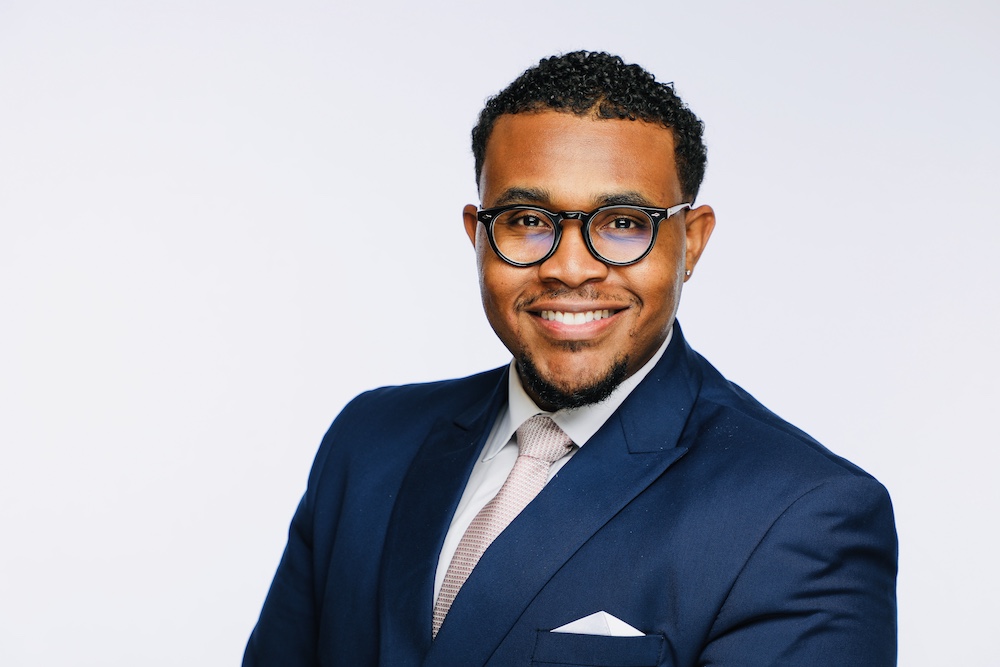Q&A: Building confidence in the face of imposter syndrome

As they embark on their dental careers, new dentists may doubt themselves or feel like frauds despite their successes — a phenomenon known as imposter syndrome.
Jordan A. Pierre, D.D.S., who graduated from the Meharry Medical College School of Dentistry in 2020 and works as a general dentist in the greater Nashville, Tennessee, area, said he's experienced it himself. Those feelings led Dr. Pierre to focus on imposter syndrome during his time in the ADA Wellness Ambassador Program, which trains dentists to help their peers connect with support services to address their well-being challenges.
Dr. Pierre discussed his experiences with imposter syndrome with the New Dentist News and shared advice for other new dentists who may be struggling with it. The American Dental Association also offers wellness-related resources at ADA.org/wellness.
Q: How have you dealt with imposter syndrome in your own career?
A: When my career first began, I would constantly hear, "You look too young." It didn’t affect me regularly, but when it did, it would linger for days, causing me to overthink. I found myself trying to act older, which wasn’t true to who I am. I’d also overanalyze, wondering if "you look too young" was code for something deeper. To cope, I began to fully embrace my identity. I am a relatively young, first-generation African American dentist, and I’m proud of that. Thankfully, I do look young. However, despite my youthful appearance, I am skilled, qualified and capable. Now when I hear, "You look too young," I kindly respond with, "Thank you, you look nice yourself," and continue being the doctor I was trained to be.
Q: Why do you think new dentists might be prone to imposter syndrome?
A: New or young dentists are prone to imposter syndrome for several reasons. A lack of real-world experience can make them feel inadequate or unprepared for handling complex cases, despite their education. The high level of skill and precision required in dentistry can lead to fear of not meeting the expectations of patients, colleagues or even their own standards. Comparing themselves with seasoned professionals often intensifies these feelings of self-doubt. Additionally, challenging patient interactions or difficult procedures can reinforce the idea that they’re not fully capable. The constant evolution of dental technology can feel overwhelming, as young dentists may struggle to stay updated. Financial pressures, such as managing student debt or the business side of a practice, can further add to their stress. Perfectionism plays a role too. When things don’t go as planned, they may feel like frauds. Lastly, limited peer support or mentorship can make them feel isolated, which can exacerbate imposter syndrome.
Q: What can new dentists do if they are experiencing imposter syndrome?
A: If a new dentist is facing imposter syndrome, there are several strategies they can implement to build confidence and manage those feelings of inadequacy. My top five recommendations are:
1. Seek mentorship: Connecting with experienced dentists for guidance, feedback and advice can provide reassurance and help them navigate early career challenges. A mentor can also offer perspective on personal growth and professional development.
2. Focus on continuous learning: Participating in continuing education courses, attending workshops and staying updated on the latest techniques and technologies can boost competence and confidence.
3. Build your network: Building a support network with other young dentists facing similar challenges can create a sense of community and shared experience, reducing feelings of isolation. Attending local dental society meetings and using social media intentionally can help with this.
4. Be patient with growth: Realizing that expertise takes time to develop can reduce the pressure to be perfect immediately. Allowing room for mistakes and learning from them is essential for growth.
5. Seek professional help if needed: If feelings of imposter syndrome persist or worsen, speaking to a therapist or counselor who specializes in professional anxiety can provide tools to cope more effectively.
By taking proactive steps like these, new dentists can begin to alleviate imposter syndrome and build a strong foundation for their careers.



